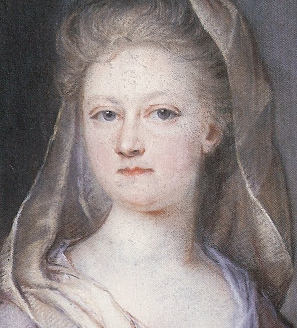jane mecom's social media

I was reading some of the writings of Jane Franklin Mecom, Ben Franklin's sister. She never published anything: it's all personal letters, mainly to her brother. But she wrote to other friends, too. She finally got around, in her later years, to reading her brother's political writings, but she was all along mainly interested in hearing about the lives of the people she loved.
Read this, from a letter to her niece. After telling an amusing story, she says,
but tho I am Pleas'd with this it does not give the Satisfaction I wish such Near Relation as you, and I should write more constant and circumstantially I want to know a Thousand litle Perticulars about your self yr Husband and the children such as your mother used to write me and tho I readily Excuse yr not writing more at this time I cannot so Easely Excuse yr long Silence who have it allways in yr Power to send sure without Expence or troble, it would be Next to Seeing the little things [that is, the children] to hear some of there Prattle (Speaches If you Pleas) and have you Describe there persons and actions tell me who they Look like Etc— Etc—
Here's what struck me as I read it: this woman, writing in the mid-1700s, wants Facebook.
I know people use Facebook for different things, including professional networking and business promotion, but I mainly use it for the same reason Jane would have. You occasionally hear someone speak disparagingly of typical Facebook posts, saying that we really don't want to know what you had for breakfast or that your kid won a trophy or what mood you're in. But the fact is that we do want to know those things, when it's someone we know and care about.
We often think of new technology as creating some sort of "need" that isn't really there in us in order to fill it. It's not true, though. The need that Facebook meets was always there. It was there in the 2000s, before Facebook came on; it was there in the 80s, before the modern internet; it was there in the unplugged 7th century BC, and well before, and well after; it was certainly there in Jane Franklin Mecom's 18th century, when even a few miles away from family was a real separation.
Passages like this remind us that it's now, miraculously, allways in our Power to share daily details that are the bread and butter of life with the people we love, sure without Expence or troble — and that it's as false to think new technology brings new alienation as it is to think spelling and grammar are deteriorating.


Comments